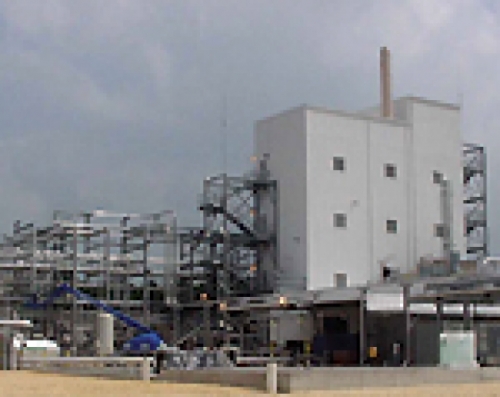In the computer industry, smaller chips are faster chips. But as chips get smaller, their features become more intricate, making it difficult to clean and prepare them for use.
Traditionally, manufacturers have used water combined with toxic chemicals to clean the chips. With the smaller ones, though, it’s difficult to get the residue off without damaging them. That’s because water has a high surface tension, and even a small drop can cling to the chip and lead to rather significant defects.
But Joseph DeSimone, professor of chemistry, thinks he can help clean up the chip manufacturing industry. Using the same technology he invented for dry cleaning clothes without toxic chemicals, DeSimone plans to use carbon dioxide to clean electronic chips.
“Unlike water, carbon dioxide has the lowest surface tension of any solvent,” DeSimone says. “And we’ve found it can eliminate the defects that occur with water.”
The technology has been licensed to Micell Technologies, the company DeSimone and two of his students founded in 1995. Micell pioneered the use of a special soap that when dissolved in liquid carbon dioxide can eliminate the need for toxic dry cleaning solvents.
DeSimone is garnering much press and support for his work. His research was recently highlighted in Technology Review — Massachusetts Institute of Technology’s magazine about innovation. The article calls DeSimone’s technology a “win-win situation for those balancing environmental impact and manufacturing performance in the high-tech industry.”
The European Union (EU) has also taken notice of DeSimone’s manufacturing methods. In February, officials from the EU’s Competition and Sustainable Growth Program announced they would devote approximately $1 million to fund research in the use of carbon dioxide as a polymer solvent in manufacturing fluoropolymers — a process also pioneered by DeSimone and his students.
This announcement coincides with DuPont’s introduction of the first commercial DuPont Teflon fluoropolymer resins, using the supercritical carbon dioxide technology developed jointly by DuPont, DeSimone, and Carolina colleagues. The process will be used to make products such as wire and cable insulation and jackets, flexible tubing, and industrial films at DuPont’s new $40 million plant in Fayetteville, N.C.
Catherine House was formerly a staff contributor for Endeavors.


